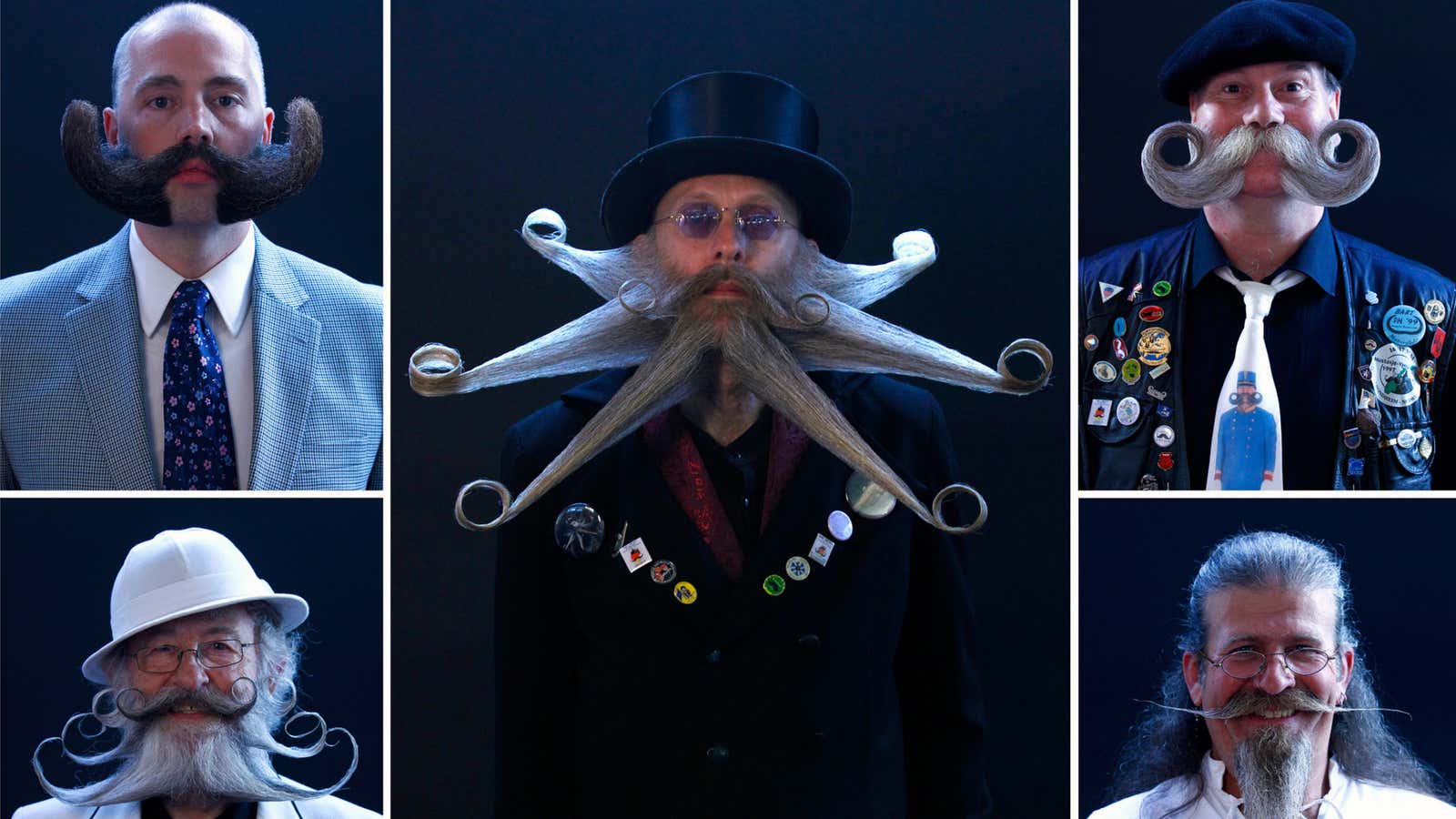The fashionability of facial hair is bad news for the razor industry.
The male shaving sector has slowed down in both the US and Europe this year, and that’s at least in part due to the rising popularity of stubble, according to a recent report from Euromonitor. A move away from a culture of everyday shaving and towards one in which men embrace an artfully trimmed permanent two-day shadow—or, indeed, a full beard—has pinched some of the industry’s largest players.
Energizer Holdings, which owns both Schick and Edge, is among those feeling the stubble effect. The company has cited shrinking razor and blade sales in several of its earnings calls this year. “The weakness in some of the Personal Care categories in the US… are kind of unprecedented,” CEO Ward Klein said last month. “And I’m really talking about razors and blades in particular,” he added.
Procter & Gamble, which bought Gillette in 2005 and currently controls some 60% of the male shaving market worldwide according to Euromonitor, hasn’t been exempt either. Gillette’s financial struggles have forced it to scale back on R&D spending, and it has produced few new products of late, Euromonitor noted back in July. Its newest, the Fusion ProGlide Styler, is almost two years old, and it attempts to cater for the new trends in male grooming by doubling up as both a razor and an electric trimmer. Gillette has also been moving up-market in an attempt to counter weakening razor demand with higher prices.
The winner in this changing landscape appears to be the disposable razor—presumably because, as men shave less often, fewer of them need more expensive high-quality blades. Energizer Holdings’ disposable razor business has grown by 5% this year, faster than expected, the company said in an earnings call last month. Bic, which makes cheap disposable razors as well as pens, has cited double-digit growth in the US. And a number of upstart, hip shaving companies, like Dollar Shave Club, have also jumped on the disposable razor bandwagon. In the US, smaller, unlisted companies increased their market share by a quarter from 2008 to 2012, says Euromonitor, though it’s still small at 3.6%.
Shaving still makes up roughly 40% of the male grooming market, according to Euromonitor, but that’s quickly changing. Sales of men’s toiletries, such as deodorant, are slated to overtake shaving products for the first time ever this year.
